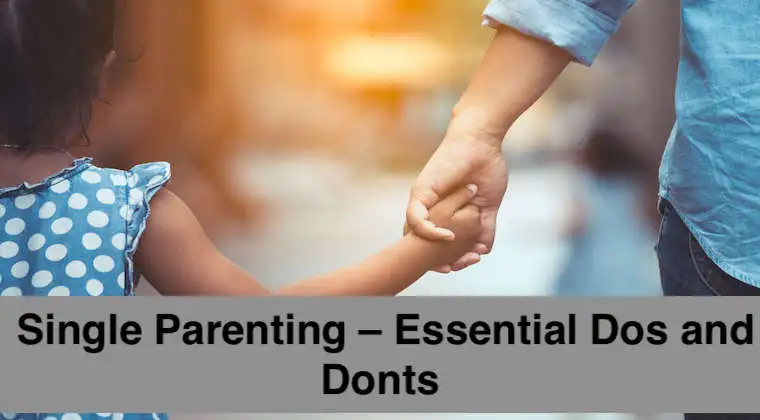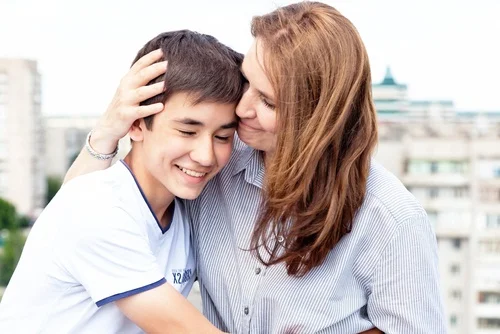+1 845 259 2974 (11 a.m to 7 p.m CST)
Single Parenting – Essential Dos and Donts

Single parenting is a journey filled with unique challenges and rewards. Whether you’re a single parent by choice or circumstance, it requires resilience, patience, and a lot of love. Understanding the essential dos and don’ts can help you navigate this path with confidence, ensuring a healthy and happy environment for both you and your child.
The Essential Dos
·Prioritize Self-Care
As a single parent, it’s easy to put your needs on the back burner, but taking care of yourself is crucial. Prioritize your physical and mental health by getting enough rest, eating well, and setting aside time for activities you enjoy. Regular exercise, even if it’s just a short walk, can do wonders for your mood and energy levels. Remember, when you’re healthy and happy, you’re better equipped to take care of your child.
·Establish a Routine
Children thrive on routine, and so do parents. A consistent schedule provides stability and a sense of security for your child. Set regular times for meals, homework, play, and bedtime. This doesn’t mean every day has to be rigidly structured, but having predictable routines can help both you and your child manage time better and reduce stress.
·Communicate Openly with Your Child
Open communication is key in any parent-child relationship, but it’s especially important in single-parent households. Encourage your child to share their thoughts and feelings with you. Be honest with them about your situation in an age-appropriate way. This openness helps build trust and reassures your child that they can come to you with anything.
·Seek Support from Family and Friends
No one should have to parent alone. Build a strong support system with family, friends, and even other single parents. Don’t hesitate to ask for help when you need it, whether it’s for babysitting, emotional support, or just someone to talk to. Being part of a community can make the challenges of single parenting much more manageable.
·Be Financially Prepared
Single parenting often means managing finances on one income, which can be challenging. It’s essential to create a budget that works for you and your family. Track your expenses, prioritize savings, and set aside an emergency fund. Consider speaking to a financial advisor for personalized advice. Being financially prepared can reduce stress and provide peace of mind.
·Encourage Independence
Teaching your child to be independent is one of the greatest gifts you can give them. Start by assigning age-appropriate tasks, like cleaning their room or helping with meals. Encouraging independence builds confidence in your child and helps them develop valuable life skills. It also lightens your load, giving you more time for other responsibilities.
The Essential Don’ts
·Don’t Overburden Yourself
As a single parent, it’s important to recognize and accept your limitations. You can’t do everything on your own, and that’s okay. Don’t be afraid to delegate tasks to your children, if they’re old enough, or ask for help from others. Trying to do too much can lead to burnout, which isn’t good for you or your child.
·Don’t Neglect Discipline
Consistency is key when it comes to discipline. It’s important to set clear boundaries and stick to them. Avoid falling into the guilt trap where you overcompensate by being too lenient. Children need structure and discipline to understand what’s expected of them. Fair and consistent discipline helps your child develop respect and responsibility.
·Don’t Isolate Yourself
Social isolation can be a risk for single parents, especially when you’re juggling multiple responsibilities. Make an effort to stay connected with others, whether it’s through playdates, community groups, or social media. Having a social outlet is important for your mental health and can provide a sense of belonging and support.
·Don’t Compare Yourself to Others
Every parenting journey is unique, and comparing yourself to others can be harmful. What works for one family may not work for yours, and that’s perfectly fine. Focus on what’s best for you and your child, and embrace your own path. Comparing yourself to others only leads to unnecessary stress and self-doubt.
·Don’t Ignore Your Child’s Emotions
Children in single-parent households may experience a range of emotions, from sadness to anger or confusion. It’s important to recognize these feelings and address them openly. Be attentive to any signs of emotional distress and encourage your child to express their emotions. Supporting their emotional well-being is crucial for their overall development.
·Don’t Forget to Have Fun
Amidst all the responsibilities, don’t forget to create joyful memories with your child. Whether it’s a movie night at home, a weekend outing, or simply playing in the park, make time for fun. These moments of joy strengthen your bond and provide your child with a sense of security and happiness.
Single parenting is undoubtedly challenging, but it’s also incredibly rewarding. By following these essential dos and don’ts, you can create a positive and nurturing environment for your child while taking care of yourself. Remember, you’re not alone on this journey. Embrace the challenges, celebrate the successes, and continue to grow as a parent and a person.




























